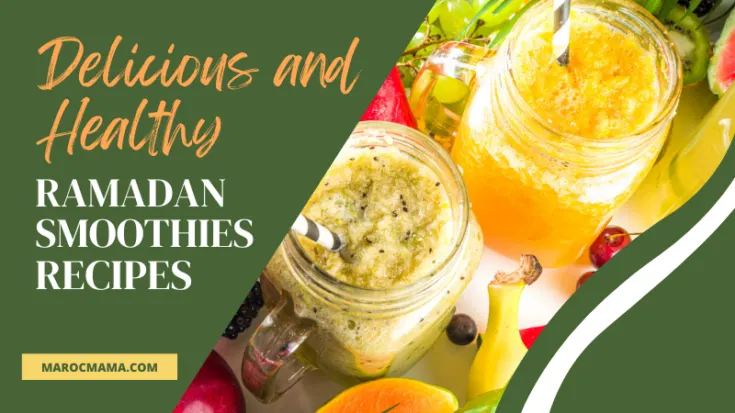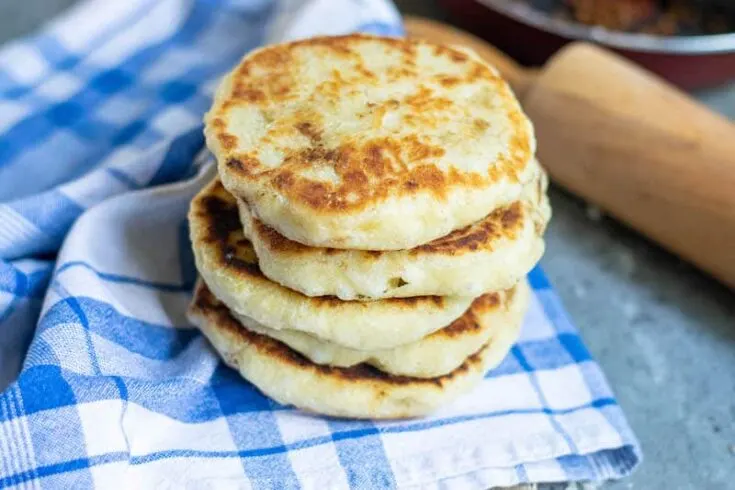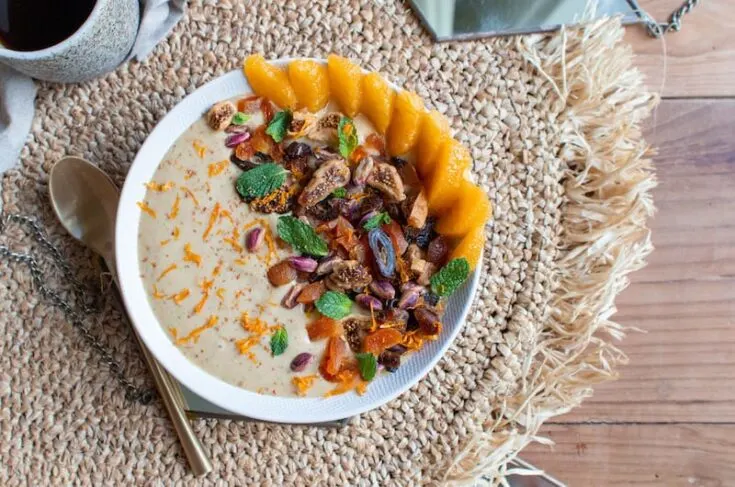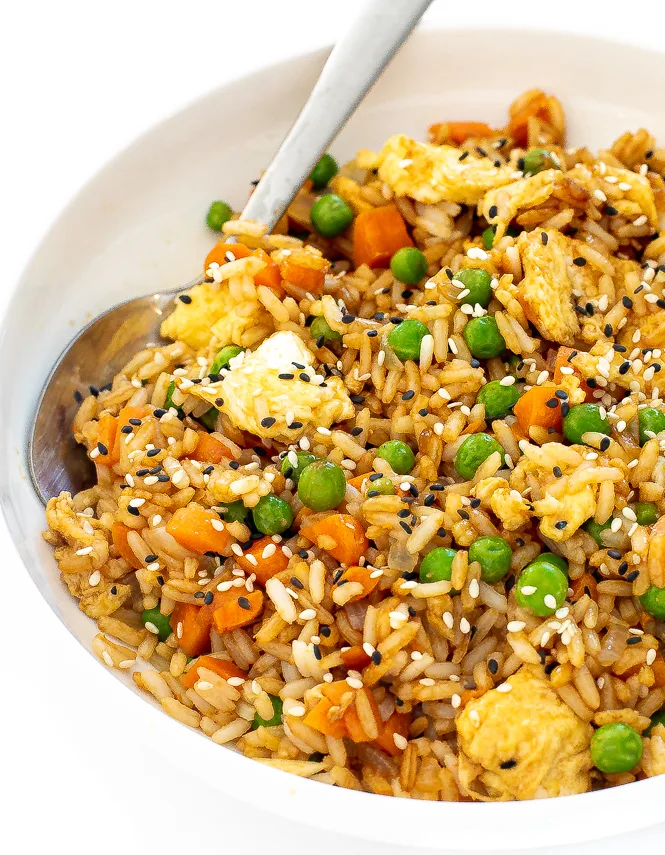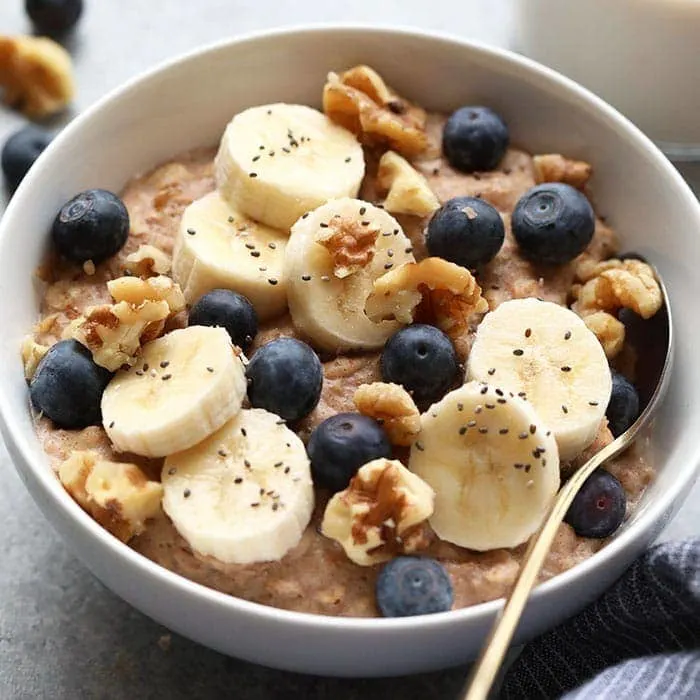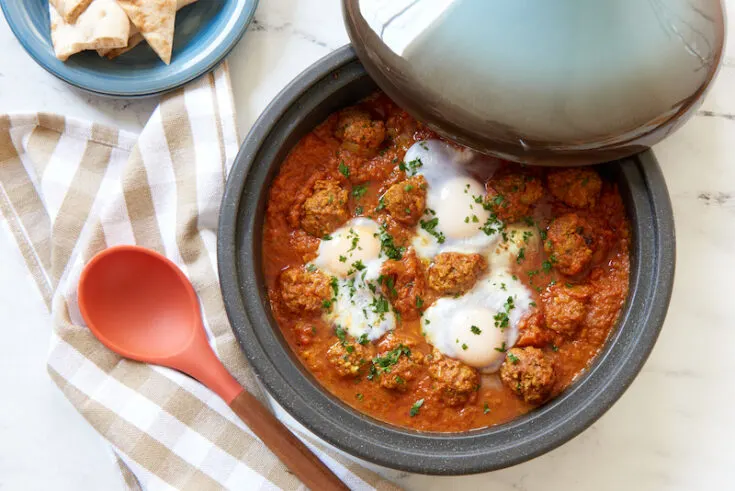Breakfast in Ramadan is not only crucial, but it can be a really enjoyable time with the family. Not the breaking fast meal, but the early morning suhoor before the fast begins. The way families approach this meal varies so drastically from country to country and kitchen to kitchen.
I am not a fan of getting up after just a few hours of sleep and then cooking an elaborate meal so my suhoor ideas are often limited. My sleep is just too valuable to me as a working mom. I also don’t like to ever oversleep and miss it (but trust me it has totally happened!) These breakfasts are great to add to your list of Ramadan recipes.

Eating the right foods for suhoor is important to me so that my family and I have the energy to stay active throughout Ramadan. The three most important things for my Ramadan breakfasts are protein, whole grains, and hydration. Variety is nice too. Deliciousness goes without saying.
What are some traditional breakfast dishes for suhoor?
Traditional breakfast dishes for Suhoor in many areas of the Middle East include ful medames (stewed fava beans), hummus, foul (fava bean dip), labneh (strained yogurt cheese), tahini, falafel, eggs with feta cheese and olives, omelet with tomatoes and onions, manakish (baked flatbread topped with za’atar spice mix), baba ghanoush, pita bread, and dates.
In Morocco, traditional suhoor items are generally very light. This can be an omelet, or some type of bread like msemmen, harcha, or beghrir. For a little heavier option an egg and meatball tajine might be prepared.

Are there any health benefits to eating a Suhoor meal?
Eating a Suhoor meal can provide several health benefits, such as increased energy and concentration, improved metabolism, and reduced cravings. The meal can also help to prevent dehydration and provide essential nutrients such as carbohydrates and protein which are important for digestion, satiety, and mental alertness.
Additionally, it has been shown that breaking the fast with a healthy Suhoor meal helps to reduce overeating later on in the day.
Is it okay to skip the Suhoor meal if one is not hungry?
There’s no rule that you have to eat, and it’s never a good idea to eat if your body is not hungry. If it’s possible, try to pace your food intake so that you can eat smaller meals during non-fasting hours. This can help you stay full longer.
However, one of the most important things to keep in mind is to drink plenty of fluids or eat food items that have a lot of liquid naturally. Hydration is really important, especially in hotter months.
Here are 11 Ramadan breakfast ideas I think your family will enjoy.
Ramadan Suhoor Recipe Ideas
These lentil-stuffed bread are great to make in advance and have in the freezer. They're a great vegetarian suhoor recipe and they only will require you to heat them up when you're ready to eat.
I love these really simple omelets for suhoor when you don't want to put forth a lot of effort. This uses leftover tomato and onion salad but you could pair it with any cooked or fresh salad.
We can make smoothie bowls year round in Marrakech, but it may be warm enough for you to have them for suhoor this Ramadan. Smoothie bowls are beautiful, fun to make, have endless versatility for all your family members’ needs and can be incredibly good for you if you have some healthy toppings stocked up.
You don’t have to follow any smoothie bowl recipe perfectly, just make a nice smoothie and sprinkle good stuff on top.
You can make it from scratch, or have some instant packets on hand for a really quick meal that will keep you full for hours.
Prefer a more savory suhoor meal? Fried rice is a great idea! Chop up any leftover vegetables you've got, or use frozen vegetables and toss in some rice with a great sauce. Done!
For me, pinwheels mean half a day or maybe even overnight prepping. They usually call for yeast dough, rolling out and so on. Here is a brilliant and delicious quick version.
Maybe you’ve tried Japanese savory pancakes with seafood and veggies or South Asian gluten-free pancakes made with chickpea flour. Savory pancakes are like pan-fried fritters, enjoyed in many cultures and coming in just as many flavors.
They are an excellent, satisfying alternative to sugary pancakes. Here are 15 savory pancake recipes to get you started.
I love frittatas for several reasons. Firstly, it’s like a delicious omelet, but because it’s baked you don’t have to sweat over it and can wake people up while it’s cooking. Also, it’s like a yummy quiche, but without a heavy gluten crust. And it’s super versatile. You can use leftovers in it and prep it the night before. You can even cook it the day before and heat in the microwave. Here are few frittata combinations to choose from.
Oatmeal is pretty much a miracle food during Ramadan. It’s so good for you, gluten-free (yaye for MarocBaba) and can be topped or flavored a million ways. Throwing your oatmeal into the slow cooker, getting a few hours of sleep and waking up to hot food being nearly ready is an ideal Ramadan breakfast idea for me.
This is a really classic Moroccan tajine. It's hearty and also very quick to make. You can even make the meatballs in advance and then freeze until you're ready to cook.
Don’t Underestimate Leftovers
We frequently reheat leftovers from iftar, especially if we had guests and special foods the night before. You can also get sneaky, adding leftovers to omelets, wrapping them in a tortilla and pan-frying them, or rolling them into some dough for savory pinwheels. Add some eggs, avocado, sour cream, etc., and call it a breakfast bowl.
